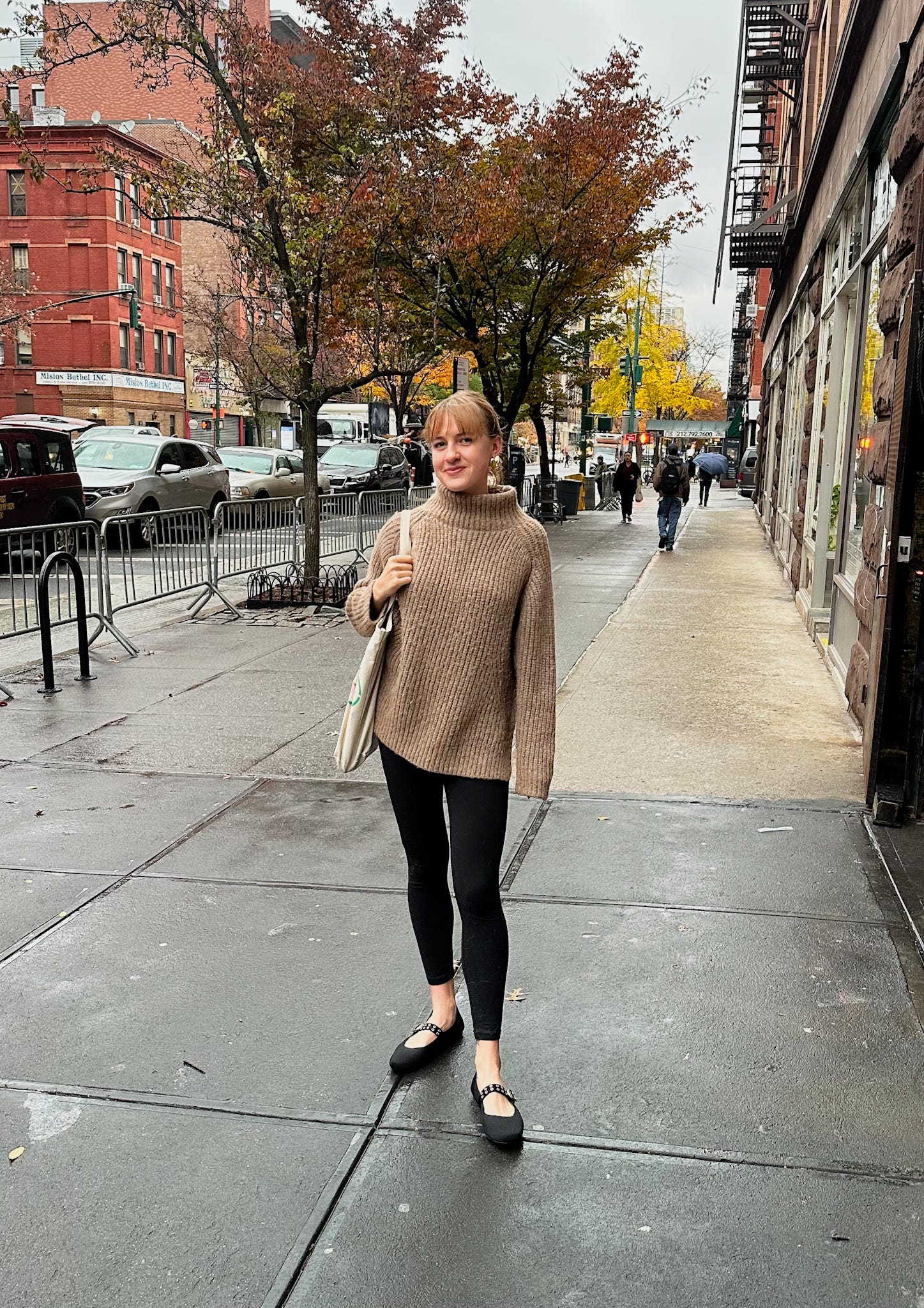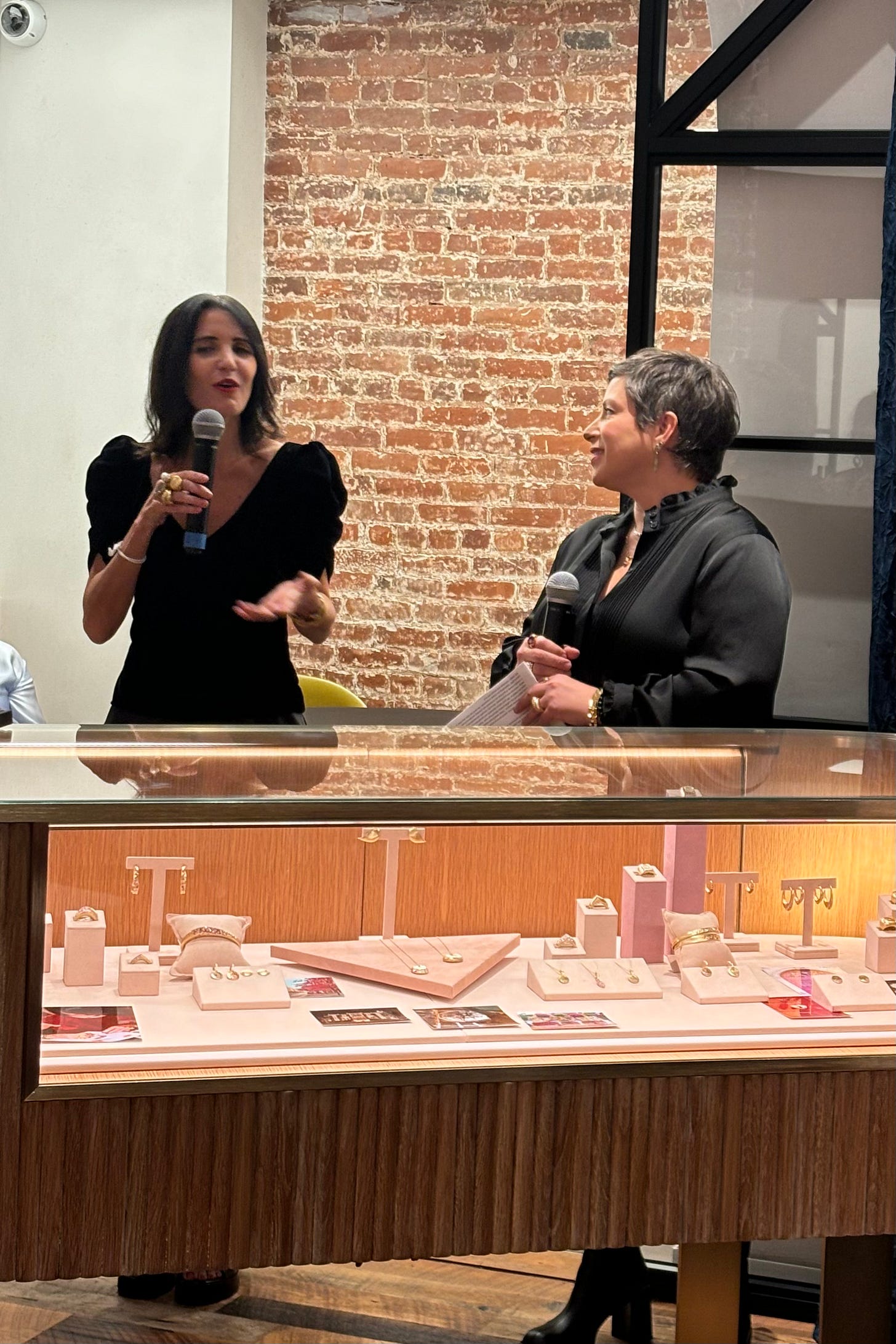Your Clothes are Changing the Weather
How everyday products shape our health, and the first step towards healing the system.
The weather influences what you wear—but did you know that what you wear can also influence the weather?
Clothing choice and weather patterns might feel unrelated. And so might denim jackets and dialysis machines, which is why an acquaintance I saw last week, familiar with my interest in sustainable fashion, was surprised to learn that my professional background is almost entirely in the medical field.
To me, though, health and design are interconnected—just like clothes and the climate. By the end of this, I hope you’ll see it too and agree that there’s more we can do about it.
This month, a study showed that microplastics have made it to the sky. They’re interfering with clouds and changing precipitation patterns. Most of us already know these tiny shreds of synthetic material are harmful – perhaps you’ve heard they’re now in our bodies or damaging agriculture or even transferring human pathogens and fecal matter into those crops…which we eat…
Get my point? It’s all connected. And it’s not just plastics – we could as easily call out the many products made with PFAS leading to increased rates of cancer, the traditional leather industry whose workers have increased rates of cancer, the dyes used in much of our clothing that can cause skin irritation and, you guessed it – cancer. (This gets less depressing, I promise!)
The open wounds from our everyday products are oozing, and yet we keep relying on bandaids to just keep them out of sight.
I chose medical device design after college because it felt important. But working in the field, it quickly became clear how much of our healthcare system is focused on treating symptoms rather than addressing underlying issues. It’s designed to make you feel better (you know, now that you have plastics in your lungs). While symptom-focused care is essential, it’s an exhausting way to live if it’s the only definition of health we have.
A lot of today’s health issues—many chronic diseases, mental health struggles, environmental illnesses—are preventable. We shouldn’t have to spend years of our lives trying to get pain to go away, yet we’re stuck in a cycle of treating symptoms instead of addressing root causes.
Most of us already know this, to some extent. We know that natural materials are generally better than plastics, that Fast Fashion is a dirty word, and that reusable water bottles are the way to go. That’s what we’re told.
If you're chronically ill, diet is often the first thing to address. To truly make changes, you need to understand aspects like the role of protein, sugar's effect on blood sugar, and probiotics for gut health. Without this knowledge, would you stick to a costly diet plan full of unfamiliar foods just because someone said, "It's good for you"?
That’s largely how the product and apparel design fields – aka, the things we use every day – feel to me today. It feels like we’re in a society that’s normalized having Cheetos and a Coca-Cola for breakfast, and then stands aghast that their health is in decline.
I’ve learned too much not to care now; I know what a good breakfast tastes like and how it makes me feel. That’s why the idea of shopping at Zara or H&M feels like the equivalent of grocery shopping at a Pump & Munch. The more you understand about the why behind something, the more you’ll be naturally drawn to the healthier option.
I recently attended a talk with the founders of the sustainable clothing brand FOUR and was inspired by their story and the care put into every product. I bought one of their sweaters, made from undyed alpaca, and it feels like wearing a hug. I don’t take it off—it might even deserve a name by now (any suggestions?). That sweater is to an acrylic H&M sweater what farm-fresh strawberries are to Skittles.

Yes, ethical and sustainable products can be more expensive and harder to find, and expecting everyone to buy small-batch, undyed alpaca sweaters might not be realistic. But that shouldn’t stop the conversation—our health and future depend on it. It’s understandable that for many, the cost and unfamiliarity with sustainable design can make the shift toward a more ethical, sustainable lifestyle feel overwhelming and out of reach.
But you don’t need a home full of organic products or to memorize all the ethical certifications to make a difference. Changing our culture starts with shifting our mindset—the way we think about the products we consume. Just like eating junk food can block fullness-signaling messages to the body, buying cheap products disconnects us from what we actually need and creates more problems in the process.
This isn’t about blaming individuals or letting massive sectors like the pharmaceutical or fast fashion industries off the hook. It’s about recognizing that you don’t need permission from anyone—be it an industry, a system, or even society—to start making a change. It’s about understanding that your contribution, no matter how small it seems, matters.
I’m hopeful. The medical field is beginning to recognize that our bodies are interconnected systems, not just separate organs. I believe our broader understanding of the world as a connected system will follow. The first step is realizing that everything is linked—and that includes us. So, your contribution, whatever that means for you, your willingness to start shifting your mindset—that matters too.
We are waking up to the fact that we are sick. Our bodies are weak, our mind is tired. Anger and ignorance have been the two responses we’ve been choosing from, and now it’s time to move past them.
If we are to design a healthy, connected system, we have to recognize that it can’t be built around acting in ways that damage another part of the same ecosystem.
Bad design sucks for everybody. Yes, there are people who profit today and others who suffer significantly more, but even if you profit off of something that perpetuates microplastic pollution, you too end up with microplastics in your body. We all exist under the same sky. Healing has to come from seeing the whole.
Where do we start? There are countless answers you could give, but I’ll share the ones that have been heavily on my mind over the last few weeks.
We’re in an incredibly trying political climate, where it almost feels wrong not to hate your neighbor. I, for one, have struggled with this, and most days I’d rather sever a limb than face how all of this is connected to me.
So, my starting points: curiosity, beauty, and grace.
Curiosity: recognizing there’s more than meets the eye. I like the word curiosity because it evokes a sense of light-heartedness, of wonder, of asking questions not to prove others wrong but to expand ourselves. What are the things around you made of? Where did they come from? Who made them? Our world is a product of interconnected stories.
Beauty: I attended a talk last week by jewelry designer Nada Ghazal, moderated by Greenwich St. Jewelers owner Jennifer Garcia Gandia. This exchange speaks for itself:
Jennifer: “Why is it essential to pursue beauty in difficult times?”
Nada: “Sometimes you can’t remove something that’s bad from the world, but you can add something that’s good.”
In a world that can feel like it's spiraling out of control, we can look for the detail or moment that reminds us that there is still so much good around us. Find it, hold it, and build from there.

Grace: “Lead with grace and assume goodwill,” said my friend Mal at coffee this morning, recalling a phrase her mom often used growing up that she strives to live by.
We won’t get it right all the time. A lot of the time, probably. Yet, we can have kindness when we stumble, towards others and towards ourselves. Progress isn’t perfect, but the fear of imperfection holds us back. So, take a step forward, and lead with grace.
Grace might bring to mind a familiar tune – I once was lost, but now I’m found. I’ve always liked that – it’d be a pretty boring song without the first half of that line.
A lot of us feel lost right now, living in a world full of disease and dis-ease. But we have more power than we let ourselves believe. We deserve to feel good. We deserve to be part of a healthy world.
So, get curious. Find beauty. Lead with grace. You deserve that; we all do.




Hi Jackie! I love the comparison to food, such an important message. Thank you for sharing this 💚
How about "Woolie II" as the name for the sweater?